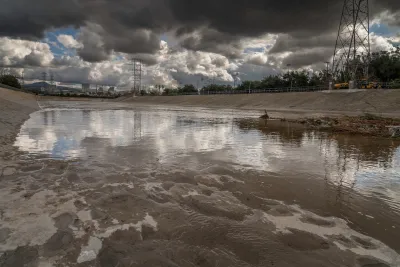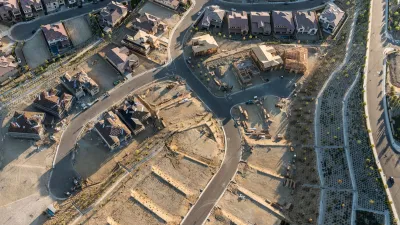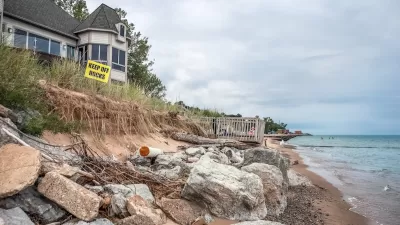Chief Sustainability Officer Rita Kampalath outlines the County’s shift from planning to implementation in its climate resilience efforts, emphasizing cross-departmental coordination, updated recovery strategies, and the need for flexible funding.

In this wide-ranging interview, LA County Chief Sustainability Officer Rita Kampalath discusses the County’s evolving approach to climate resilience and disaster recovery, emphasizing a shift from planning to implementation. Since the adoption of the OurCounty Sustainability Plan in 2019, more than 80 percent of prioritized actions are either completed or on track — including major accomplishments like the oil drilling phase-out ordinance, the County’s first water plan, and expanded renewable energy access through the Clean Power Alliance. Now, as the County updates the plan, Kampalath stresses the need for targeted updates that reflect emerging challenges such as extreme heat, flooding, and wildfire recovery.
A major addition to the revised plan is a comprehensive climate resilience strategy, led by the newly appointed Climate Resilience Officer. This role emerged from a growing recognition that climate hazards are affecting residents now — not just in the future — and must be addressed through cross-departmental coordination and equitable community engagement. Kampalath notes that disaster recovery efforts, such as rebuilding after the Eaton and Palisades fires, are an opportunity to "build back better," integrating modern resilience standards while navigating policy challenges around rebuilding codes, infrastructure, and public expectations.
Kampalath also reflects on the limitations of existing governance and funding structures, which often are not equipped to handle the complexity of today’s climate threats. She stresses that the urgency now lies in execution or implementation and that regional cooperation and flexible funding mechanisms are essential to move from vision to action. Drawing lessons from other jurisdictions like Boulder and Maui, Kampalath calls for a rethinking of both how government collaborates internally and how it secures the resources necessary to support communities not just in recovery, but in long-term climate resilience.
FULL STORY: CSO Rita Kampalath on LA County Resilience Planning

Planetizen Federal Action Tracker
A weekly monitor of how Trump’s orders and actions are impacting planners and planning in America.

Chicago’s Ghost Rails
Just beneath the surface of the modern city lie the remnants of its expansive early 20th-century streetcar system.

San Antonio and Austin are Fusing Into one Massive Megaregion
The region spanning the two central Texas cities is growing fast, posing challenges for local infrastructure and water supplies.

Since Zion's Shuttles Went Electric “The Smog is Gone”
Visitors to Zion National Park can enjoy the canyon via the nation’s first fully electric park shuttle system.

Trump Distributing DOT Safety Funds at 1/10 Rate of Biden
Funds for Safe Streets and other transportation safety and equity programs are being held up by administrative reviews and conflicts with the Trump administration’s priorities.

German Cities Subsidize Taxis for Women Amid Wave of Violence
Free or low-cost taxi rides can help women navigate cities more safely, but critics say the programs don't address the root causes of violence against women.
Urban Design for Planners 1: Software Tools
This six-course series explores essential urban design concepts using open source software and equips planners with the tools they need to participate fully in the urban design process.
Planning for Universal Design
Learn the tools for implementing Universal Design in planning regulations.
planning NEXT
Appalachian Highlands Housing Partners
Mpact (founded as Rail~Volution)
City of Camden Redevelopment Agency
City of Astoria
City of Portland
City of Laramie





























